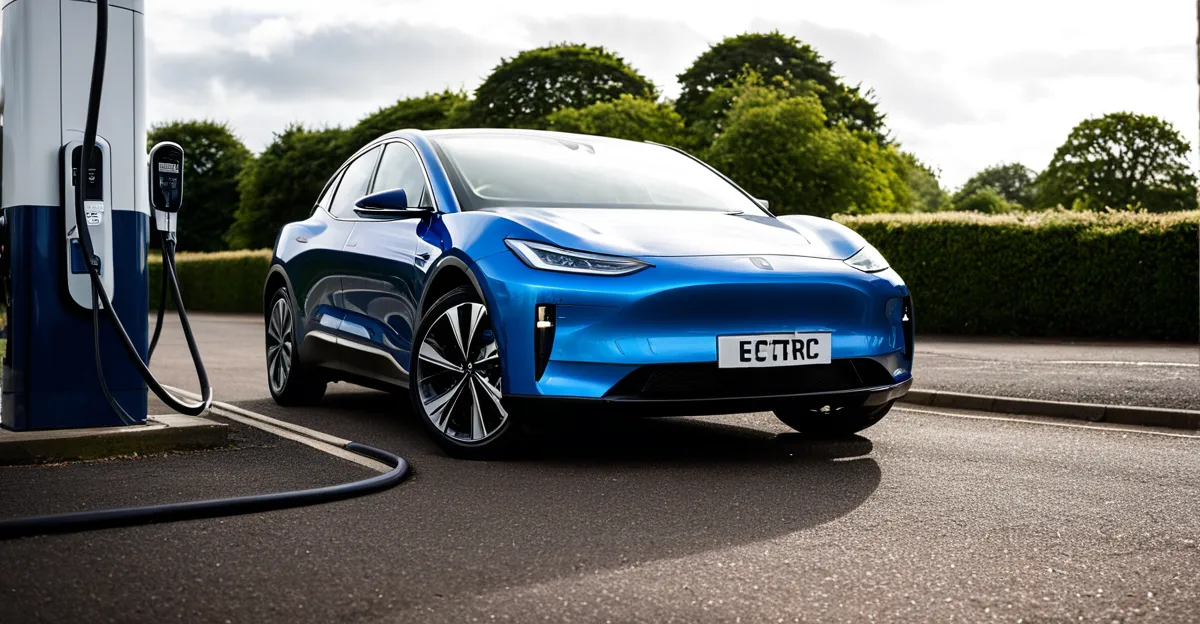The UK’s Position and Influence in the Global Electric Vehicle Market
The UK EV market position is increasingly significant in the global electric vehicle industry, standing as a key hub for innovation, manufacturing, and market adoption. Currently, the UK holds a notable share of global EV sales and production, contributing substantially to the European market and influencing international trends. Its strategic location, combined with a robust automotive sector, allows the UK not only to compete but also to lead in several aspects of electric vehicle development and deployment.
Recognised as a central player in European and worldwide EV markets, the UK benefits from a combination of well-established manufacturing capabilities and a proactive approach to market expansion. This position is further strengthened by the UK’s influence in EVs through shaping standards and policies that often resonate beyond its borders, impacting how EVs are developed and adopted internationally.
In parallel : How are UK automotive companies addressing the skills gap in the industry?
The UK market is critical to global automotive manufacturing chains, serving as both a production and export base. British companies and facilities play a crucial role in supplying electric vehicles and components to global markets, which reinforces the UK’s standing in the industry. This integration into international supply chains highlights the UK’s ongoing importance within the global electric vehicle industry and underscores its valuable contribution to the development and proliferation of EV technology worldwide.
UK Electric Vehicle Production and Export Capabilities
The UK EV manufacturing sector is a cornerstone of the country’s influence in the global electric vehicle industry. Leading manufacturers such as Jaguar Land Rover, Nissan, and MINI have ramped up production volumes significantly, underscoring the UK EV market position as a key manufacturing hub. For example, Jaguar Land Rover’s electric models are assembled at manufacturing plants in the UK, highlighting domestic production capabilities. Nissan’s Sunderland plant is notable for producing one of the world’s best-selling electric models, reinforcing the UK’s standing in EV manufacturing.
Also read : How are UK automotive companies leveraging digital transformation?
The export of electric vehicles from the UK represents a substantial portion of the British automotive industry’s output. UK-built EVs are shipped to major markets including the European Union, United States, and China, reflecting broad global demand and trust in UK production quality. This strong export footprint enhances the UK’s role in the global supply chain, with electric vehicles and components flowing seamlessly across borders.
In terms of supply chains, the role of UK-built EVs is critical to international supply chains that support the entire electric vehicle ecosystem. British suppliers provide essential parts and innovations that feed into larger manufacturing networks worldwide. This integration not only boosts the UK’s economic footprint but also strengthens the resilience and flexibility of the global electric vehicle sector, cementing the UK’s influence in EVs beyond just domestic market activities.
Policy Initiatives and Government Incentives Promoting EV Growth
The UK government EV policies have been pivotal in shaping the country’s accelerating transition to electric vehicles. Central to these policies are ambitious electric vehicle targets UK, which include phasing out the sale of new petrol and diesel cars by 2030. These targets set a clear timeline for manufacturers and consumers alike, encouraging rapid market adaptation and technological investment.
To complement these goals, a range of EV incentives have been implemented. These include grants for consumers purchasing electric vehicles, reduced Vehicle Excise Duty rates, and subsidies aimed at expanding charging infrastructure. Such incentives lower the barriers to EV adoption, directly boosting demand within the UK EV market position. On the manufacturing side, government-backed funding supports companies investing in EV production and research, reinforcing domestic capabilities.
The regulatory environment also plays a critical role by enforcing measures such as emission standards and ICE vehicle bans in city centres. These efforts collectively enhance the UK influence in EVs by not only driving market growth but also shaping industry standards. Through targeted investments and clear policy frameworks, the UK government promotes a stable environment conducive to sustained EV expansion. This approach ensures both the supply and demand sides are supported, cementing the UK’s leadership role within the global electric vehicle industry.
Investments, Research, and Technological Innovations in the UK
The UK’s commitment to advancing UK EV technology is evident in its substantial investment in electric vehicles and research efforts. Government and private sector funds are directed towards expanding production capabilities and enhancing electric vehicle R&D, fostering innovation that strengthens the country’s position in the global electric vehicle industry. These investments enable the development of more efficient batteries, faster charging solutions, and improved vehicle designs that cater to evolving consumer and market demands.
UK-based companies and universities are at the forefront of pioneering technology. Research institutions contribute to breakthroughs in battery chemistry and energy management systems, which are crucial for enhancing driving range and reducing costs. Simultaneously, British firms innovate in lightweight materials and charging infrastructure, advancing the practical usability of electric vehicles. This synergy between academia and industry consolidates the UK influence in EVs by promoting cutting-edge technology development domestically and internationally.
Notably, key investments support state-of-the-art production facilities that integrate advanced manufacturing processes with R&D outputs. This alignment accelerates the transition of innovations from the lab to commercial vehicles, ensuring the UK remains competitive. Through these combined efforts, the UK not only sustains its expanding UK EV market position but also contributes significantly to shaping global EV technology standards and practices.
International Collaborations and Partnerships in the EV Sector
The UK actively engages in UK global EV partnerships to reinforce its standing in the global electric vehicle industry. These collaborations span joint ventures with leading international automakers, enabling technology exchange and co-development of cutting-edge electric vehicles. For instance, British firms partner with global manufacturers to enhance battery technology and vehicle architecture, integrating UK innovations into broader production lines. This synergy bolsters the UK influence in EVs by positioning the country as a valuable collaborative hub.
The UK also maintains strong ties with European Union counterparts and other countries through international EV collaborations aimed at standardising charging infrastructure and establishing interoperable systems. Such partnerships support shared goals on climate and sustainability, aligning the UK with key players in the EV transition. These agreements enable the UK to contribute directly to international EV policy frameworks, amplifying its influence beyond its domestic market.
Participation in global climate objectives further cements the UK’s role within UK automotive alliances, as it helps shape policies that drive EV adoption worldwide. By working through these alliances, the UK leverages collective expertise and resources, fostering innovation and regulatory harmonisation. This collaborative approach strengthens the UK’s integration into the international EV ecosystem and advances its reputation as a proactive leader in the sector.
Comparative Analysis and Challenges Facing the UK EV Industry
The UK EV market position holds a significant place within the global electric vehicle industry, yet it faces distinct challenges when compared with other leading EV markets. Countries like China and Germany currently surpass the UK in terms of EV market size and production volume, presenting competitive pressure on the UK’s automotive sector. Despite rapid growth, the UK’s EV adoption rate and manufacturing scale still trail these global leaders.
A critical challenge for the UK is supply chain stability. Disruptions in the sourcing of essential components such as batteries and semiconductors have impacted production timelines and costs. These supply chain issues underscore vulnerabilities in the UK’s capacity to maintain steady growth in EV manufacturing and exports. Addressing these challenges is crucial for enhancing the UK influence in EVs on the world stage.
Investment shortfalls are another hurdle. While the UK has made considerable progress in UK investment in electric vehicles, funding levels lag behind those of top global competitors, which limits the pace of innovation and infrastructure expansion. Furthermore, the sector faces skills shortages in advanced manufacturing and technology development, hindering the full realisation of the UK’s potential.
Despite these challenges, opportunities exist to strengthen the UK’s competitiveness. Focused policies and industry collaboration can mitigate supply chain risks and attract higher investment, which would support scaling up production and fostering innovation. Enhancing workforce skills will also be pivotal in sustaining the UK’s global electric vehicle industry standing and expanding its UK EV market position in an increasingly competitive environment.





